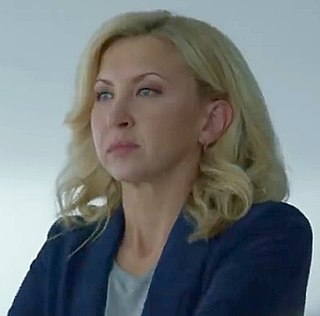A Quote by Daniel Patrick Moynihan
The Soviet Union came apart along ethnic lines. The most important factor in this breakup was the disinclination of Slavic Ukraine to continue under a regime dominated by Slavic Russia. Yugoslavia came apart also, beginning with a brutal clash between Serbia and Croatia, here again 'nations' with only the smallest differences in genealogy; with, indeed, practically a common language. Ethnic conflict does not require great differences; small will do.
Quote Topics
Again
Along
Also
Apart
Beginning
Between
Breakup
Brutal
Came
Clash
Common
Common Language
Conflict
Continue
Croatia
Differences
Does
Dominated
Ethnic
Ethnic Conflict
Factor
Genealogy
Great
Important
Indeed
Language
Lines
Most
Nations
Only
Practically
Regime
Require
Russia
Serbia
Small
Smallest
Soviet
Soviet Union
The Most Important
Ukraine
Union
Will
Yugoslavia
Related Quotes
25 million of Russian people suddenly turned out to be outside the borders of the Russian Federation. They used to live in one state; the Soviet Union has traditionally been called Russia, the Soviet Russia, and it was the great Russia. Then the Soviet Union suddenly fell apart, in fact, overnight, and it turned out that in the former Soviet Union republics there were 25 million Russians. They used to live in one country and suddenly found themselves abroad. Can you imagine how many problems came out?
We're not all the same. A common liberal refrain is that differences between individuals are statistically more significant than those between cultural, ethnic, and racial groups. I don't see why the fact of inter-individual differences would nullify inter-group variance. That's liberal logic for you.
The first year I was in office, only about 800 people came out of the Soviet Union, Jews. By the third year I was in office... second year, 1979, 51,000 came out of the Soviet Union. And every one of the human rights heroes - I'll use the word - who have come out of the Soviet Union, have said it was a turning point in their lives, and not only in the Soviet Union but also in places like Czechoslovakia and Hungary and Poland [they] saw this human rights policy of mine as being a great boost to the present democracy and freedom that they enjoy.
It is my hypothesis that the fundamental source of conflict in this new [post-Cold-War] world will not be primarily ideological or primarily economic. The great divisions among humankind and the dominating source of conflict will be cultural. Nation states will remain the most powerful actors in world affairs, but the principal conflicts of global politics will occur between nations and groups of different civilizations. The clash of civilizations will dominate global politics. The fault lines between civilizations will be the battle lines of the future.
Let us not be blind to our differences-but let us also direct attention to our common interests and to the means by which those differences can be resolved. And if we cannot end our differences, at least we can help make the world safe for diversity. For, in the final analysis, our most common link is that we all inhabit this small planet. We all breathe the same air. We all cherish our children's future. And we are all mortal.
































